Extraordinary Lutheran Ministry is pleased to announce that seminarians Rachel E. San Diego (she/hers) and Jory Mickelson (he/they) have been selected as the 2022 Joel R. Workin Scholars.

Rachel attends Pacific Lutheran Theological Seminary in Berkeley, has been recommended for ministry by the Sierra Pacific Synod and is currently an intern at Immanuel Lutheran in Seattle, Washington.
Jory is an MDivX candidate at Luther Seminary, has been 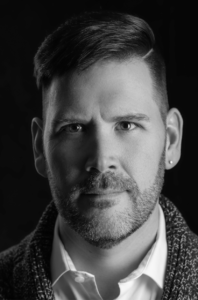 recommended for candidacy for the Northwest Washington Synod and is currently an intern at Christ Lutheran in Ferndale, Washington.
recommended for candidacy for the Northwest Washington Synod and is currently an intern at Christ Lutheran in Ferndale, Washington.
Committee Chair Michael Nelson writes: We had a dozen wonderful candidates this year –the most ever – but Jory and Rachel were the voices that we felt best honored and embodied the ongoing witness and legacy of Joel Workin.
Rachel’s sterling resume reveals a breadth of experience and steady commitment to the marginalized, as well as her work on multiple justice issues, including victims of violence. In her reflection on Joel Workin’s essay (entitled “Overflowing” which cites moments of God’s “Yes, Period” and “No, Period,” in one’s life and ministry) Rachel rousingly writes, “There is not enough white paper that could contain the stories of “No, period” that my Brown body holds.” Later, she concludes that she “was bathed in the waters of sacredness of (her) experience … (that she has found) “Yes, period” showing up in community, in grace, and in the Holy waters between us.”
Among many other accomplishments, Jory’s resume reflects their service to the church and notes that he is the recipient of the 2020 Grace Award from the Northwest Washington to serve the LGBTQIA+ community in Whatcom County. Their elegant essay was marked with insightful moments with phrases like this: “Queer people’s gift to the church is one of rupture and disorder. LGBTQIA people ruptures the silence of what God’s people fear to speak aloud and attempt to hide away. Ruptures our private spiritualities into public faith. Ruptures the barrier that church walls have become and lets in the world.”
On behalf of the committee, I congratulate each of the twelve fine candidates and pray they will continue to bear witness and ministry to the LGBTQIA+ community for years to come.
Each year ELM names a Joel R. Workin Memorial Scholar to honor the life and ministry of Joel Raydon Workin. Joel was one of the three seminarians who were refused ordination in 1989 after coming out to their candidacy committees. Upon his death, Joel’s parents, Ray and Betty, and other family and friends created the scholarship fund in his name to keep his prophetic voice part of the movement. The scholarship is available for all members of Proclaim who are preparing for rostered leadership in the Lutheran church. This year’s award comes with a $7400 award for both Rachel & Jory.
Extraordinary Lutheran Ministries organizes queer seminarians and rostered ministers, confronts barriers and systemic oppression, and activates queer ideas and movements within the Lutheran Church.
To learn more about the Workin Scholarship click here.
To read Jory and Rachel’s essays, click the links below.
Joel Workin Scholarship_Rachel San Diego Workin Essay_Jory Mickelson



 Aaron Decker (he/him) is a Theological Educator in Bolivia with ELCA Service and Justice (Global Mission). He has passions for world languages, textual ambiguity, and education as liberation. He lives with his cat, Moses; like in Exodus, Aaron might talk more, but Moses is definitely in charge.
Aaron Decker (he/him) is a Theological Educator in Bolivia with ELCA Service and Justice (Global Mission). He has passions for world languages, textual ambiguity, and education as liberation. He lives with his cat, Moses; like in Exodus, Aaron might talk more, but Moses is definitely in charge.
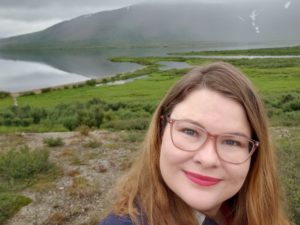 Melissa May (she/her) is a pastor reaching the end of co-leading “Phase 1” of the Virginia Eastern Shore Exploration, a Synodically Authorized Worshiping Community Exploration in the Virginia Synod. She also teaches four English classes at the Intensive English Program at Eastern Mennonite University and one English class with Afghan refugees through Church World Service in Harrisonburg, VA. Her previous two calls were as a congregational pastor in Nome, AK and as a diaconal minister in Yellowknife, Canada.
Melissa May (she/her) is a pastor reaching the end of co-leading “Phase 1” of the Virginia Eastern Shore Exploration, a Synodically Authorized Worshiping Community Exploration in the Virginia Synod. She also teaches four English classes at the Intensive English Program at Eastern Mennonite University and one English class with Afghan refugees through Church World Service in Harrisonburg, VA. Her previous two calls were as a congregational pastor in Nome, AK and as a diaconal minister in Yellowknife, Canada.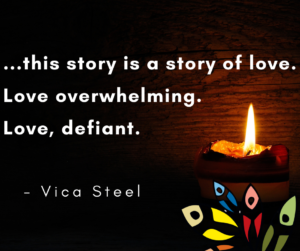
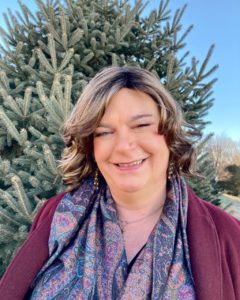 Vica Etta Steel (she/her) is a woman, queer, transgender, and unexpectedly a faith leader!
Vica Etta Steel (she/her) is a woman, queer, transgender, and unexpectedly a faith leader!  Pause.
Pause. 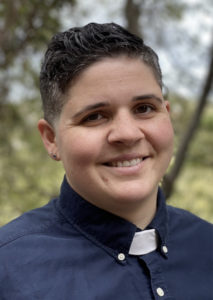

 Lewis Eggleston (he/him) is the Associate Director of Communications & Generosity at Extraordinary Lutheran Ministries. He is an Air Force spouse living in Germany with his husband and their dog-child, Carla. In March, after spending nearly 10 years in candidacy, Lewis will be ordained into the ministry of Word & Service! *all the enthusiastic emoji faces*
Lewis Eggleston (he/him) is the Associate Director of Communications & Generosity at Extraordinary Lutheran Ministries. He is an Air Force spouse living in Germany with his husband and their dog-child, Carla. In March, after spending nearly 10 years in candidacy, Lewis will be ordained into the ministry of Word & Service! *all the enthusiastic emoji faces*
 Rev. Noah Oliver Herren (he/him/his) is the Pastor of St. Luke Lutheran Church in Atlanta, GA. Noah attributes his passion for ministry and spirituality to a journey of reconciling multiple theologies and his experience as a transgender man raised in the deep South. In his downtime you will find him amassing books he may read one day, forest bathing, binging Netflix, falling down virtual rabbit holes, creating things, and spending time with friends and family.
Rev. Noah Oliver Herren (he/him/his) is the Pastor of St. Luke Lutheran Church in Atlanta, GA. Noah attributes his passion for ministry and spirituality to a journey of reconciling multiple theologies and his experience as a transgender man raised in the deep South. In his downtime you will find him amassing books he may read one day, forest bathing, binging Netflix, falling down virtual rabbit holes, creating things, and spending time with friends and family. 
 Caleb Crainer (he/him/his) serves as pastor at St. Andrew’s Lutheran Church in Los Angeles, California and Dean of the LA Metro Conference in the Southwest California Synod. He serves as the First-Call Accompaniment Coaching Convener in Proclaim. His favorite parts of ministry are getting to read whatever he wants and meandering into grace every day.
Caleb Crainer (he/him/his) serves as pastor at St. Andrew’s Lutheran Church in Los Angeles, California and Dean of the LA Metro Conference in the Southwest California Synod. He serves as the First-Call Accompaniment Coaching Convener in Proclaim. His favorite parts of ministry are getting to read whatever he wants and meandering into grace every day.